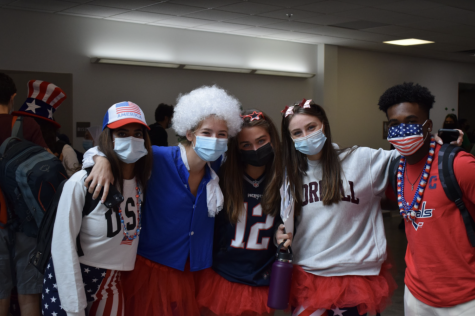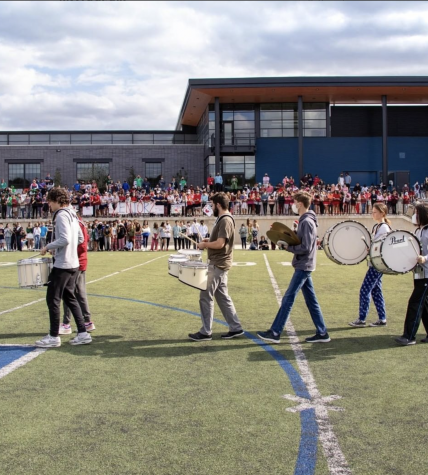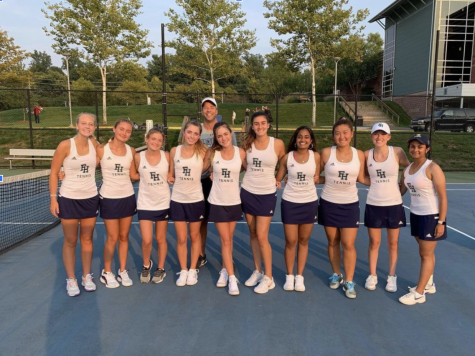A Year in the Pandemic and the Lessons We’ve Learned
April 14, 2021
It has been over a year since the first news of the Coronavirus interrupted humanity, permanently altering and changing every aspect of the world. Most people, particularly students, note the significance of March 13th, the last day of normalcy before everything halted. The infamous Friday the 13th was Flint Hill students’ last day of in person school, last day of being together without masks, distance, and fear. It was Flint Hill’s last day without the permanent stain of the pandemic, the last day before everything changed for good.
In the following weeks the world watched as the Coronavirus tightened its hold on the globe, watching as masks, gloves, hand sanitizer, and toilet paper became objects of value instead of commodities taken for granted. Distrust and unease blanketed the country as people began to hide within their homes, terrified of a disease no one truly knew anything about. The word quarantine rose from its near obsolete history and began to become part of the daily vocabulary.
Restrictions tightened around society, distancing people from each other. Haunting photos emerged, of New York’s Times Square chillingly empty, of universities utterly abandoned, and of highways barely traveled. Emptiness spread, touching virtually every corner of the world, filling in the gaps people had left behind. Despite the year in quarantine, society has persevered and endured.
The year that was littered with horrific events and trials also had small pockets of hope and enthusiasm. Many people took their time in lockdown as an opportunity to better themselves, physically and mentally. Others pursued hobbies and passions that were usually stifled due to the demands of modern life, quarantine was a chance to enjoy the immeasurable time that was presented. Despite the pandemic, people found happiness in unlikely places.
The most important thing the pandemic brought about was gratitude. Simple things that had once been taken for granted were now craved and valued. For most of humanity, the true feelings of loneliness had never been experienced until distance was enforced and isolation celebrated. The technology that was thought to bring the world closer than ever before was now exposed as inauthentic and ineffective. People realized that despite the modern advances of the world, nothing could truly replace the significance of a physical presence, a physical connection.
Despite the improvements made to virtual classrooms and teaching methods to better serve online school, it was still inadequate when compared to the experience of school in-person. Social media couldn’t replace what had been lost, couldn’t bridge the divide between families and friends who wanted nothing more than to simply see each other.
While the pandemic is cruel and unjust, offering a year of sorrow and emptiness, it also taught the world gratitude. Gratitude for the things once held, now lost. Gratitude for each other, gratitude for essential workers, gratitude for a reality without boundaries and distance. After a year in the pandemic, it is safe to say that all of the world has learned something important, how to appreciate the gifts and luxuries of everyday life. If COVID-19 has taught humanity anything, it is that even the most simple amenities in life can be stripped away. Throughout the atrocities of the pandemic, gratitude for the gift of life and each other is something the world should never forget.





